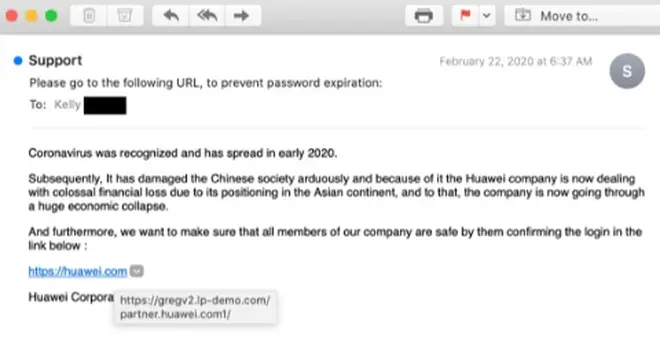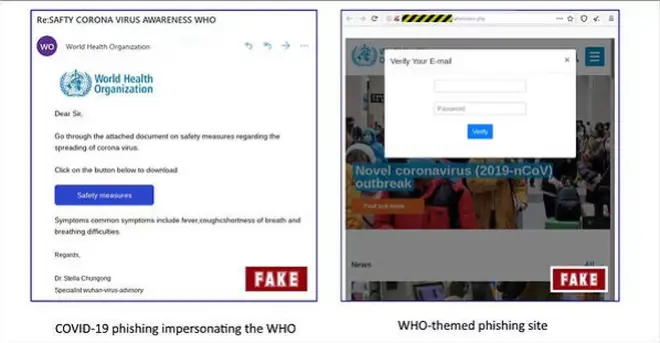On Air Now
Heart Breakfast with Jamie Theakston and Zoe Hardman 6:30am - 10am
9 March 2020, 10:32 | Updated: 9 March 2020, 10:33

Fake scam emails are taking advantage of public fears about Coronavirus - here's your need-to-know.
Scam emails that use scaremongering tactics about Coronavirus to steal personal information have been sent to many a number of people in the UK.
Read more: Coronavirus facts and myths: What you really need to know about the outbreak
A cyber security company has revealed that the emails - which attempt to steal your bank account information - claim to have been sent by reputable organisations like Centres for Disease Control and Prevention or the World Health Organisation.

Some of the emails sent give information about the virus, and requests that the recipient click on a link to learn more.
Security expert Javvad Malik - from KnowBe4 - has said that fraudsters often use serious global incidents to use 'Phishing' tactics such as these.
Read more: Martin Lewis on whether you should book a holiday amid Coronavirus fears
He told The Sun: "Perhaps the most shocking phish that we've seen purports to offer a "vaccine" for the coronavirus.
"In reality, authorities say that a real vaccine may not be ready to another one to two years."

Javvad added: "If anyone receives such an email, they should never click on any links or open any attachments in them. Nor should they reply."
One of the emails claimed that the link would show them how many confirmed Coronavirus cases there are in their area, while another - claiming to be from the World Health Organisation - promised users that it would lead to a list of updated safety measures.
Visit KnowBe4 for more information.
NOW READ:
Coronavirus UK mapped: Where in Britain are the confirmed COVID-19 cases as cases rise to 273?